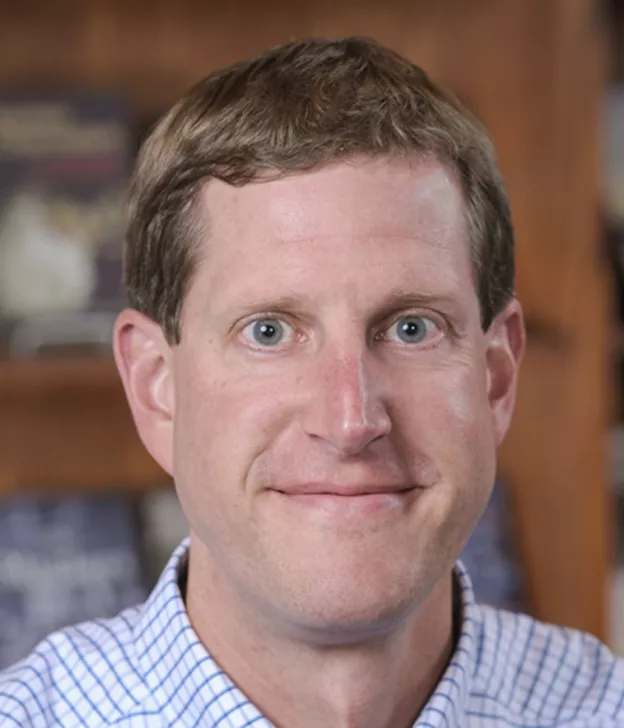
An interview with Professor Dennis Rasmussen
JMC Resident Historian Elliott Drago sat down with JMC Miller Fellow Dennis Rasmussen. Dr. Rasmussen is professor of Political Science and the Hagerty Family Fellow at Syracuse University’s Maxwell School of Citizenship and Public Affairs, as well as co-director of SU’s Political Philosophy Program and a Senior Research Associate at the Campbell Public Affairs Institute.
The utterly fascinating Gouverneur Morris
ED: What inspired you to become a political theorist?
DR: I suspect that my experience was similar to that of many academics: it was a great professor and course that did it. I majored in chemical engineering for the first year and a half of college, and when I decided that that wasn’t for me I transferred into a program called James Madison College, which is a sort of liberal arts college at Michigan State that’s focused on public affairs. I took a course on classical political philosophy—Plato, Aristotle, Machiavelli—with a professor named Dick Zinman, and I was immediately hooked.
The big questions about life and society that the course addressed, and the unexpected answers that these philosophers gave to those questions, were enthralling.
I almost couldn’t imagine doing anything with my life besides reading and teaching and thinking about these kinds of books. So I went to graduate school, was fortunate enough to get a job as a professor, and have been immensely grateful for that privilege ever since.
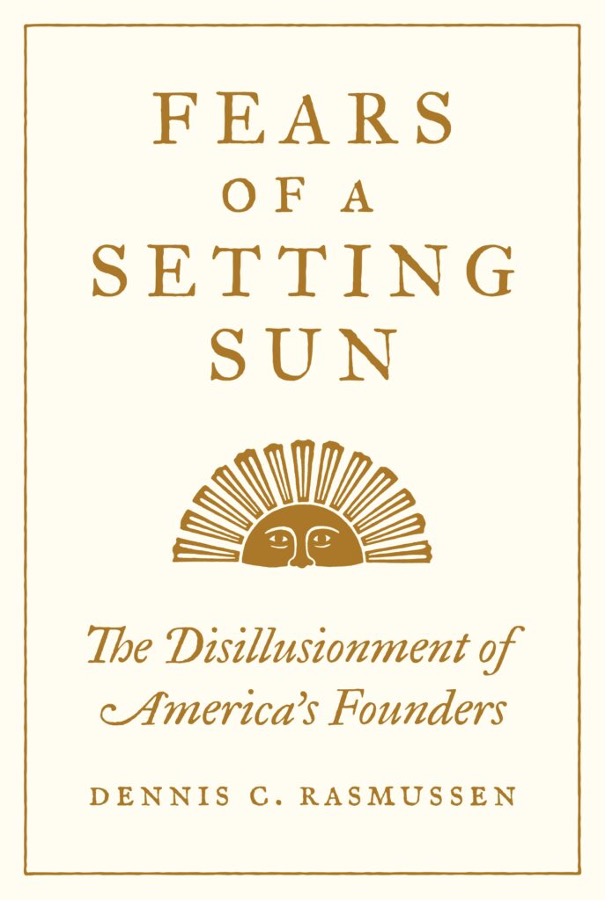
ED: What sparked your interest in Gouverneur Morris?
DR: A book that I wrote before this one, Fears of a Setting Sun: The Disillusionment of America’s Founders, focused on some of the better-known figures of the founding era: Washington, Hamilton, Adams, Jefferson, and Madison. While working on that one I came across Morris now and again—he was one of Washington’s most loyal lieutenants, one of Hamilton’s closest friends, and a partisan opponent of Jefferson and Madison.
DR: Every encounter with Morris left me more and more convinced that he’s an important and utterly fascinating figure who deserves to be far better known than he is.
It seems to me hard not to be interested in a peg-legged ladies’ man with a wicked sense of humor, a guy who held thoughtful but controversial views on all kinds of subjects and who also happened to turn up at some of the critical moments of two great revolutions, from Valley Forge to the Philadelphia Convention and from the convening of the Estates General to the height of the Terror. There have been no fewer than four biographies of Morris published over the past two decades, but there had never been a book devoted to his constitutional vision, so I decided to have a crack at it.
DR: Morris was arguably the dominant figure at the Philadelphia Convention that formulated the Constitution. He spoke more often than any other delegate, he proposed more motions than any other delegate, and he had more of his motions accepted than any other delegate. And, most importantly of all, Morris was the one who wrote the Constitution itself. At the end of the summer the delegates formed what was called a Committee of Style to compose the final draft of the Constitution, and the committee in turn just had Morris do it. It’s unbelievable, to me, that so few people know this. Most American schoolchildren can tell you that Jefferson wrote the Declaration of Independence, yet very few people, no matter how well read they may be, know that Morris wrote the Constitution.
Of course, the Constitution’s provisions had been laboriously debated and voted on over the course of the summer before he took up his pen, so his leeway in choosing the structure and powers of the proposed government was minimal.
ED: Explain Morris’s most significant contributions to the United States Constitution.
DR: Still, Morris singlehandedly and rather radically reorganized the draft constitution that was produced by the Committee of Detail midway through the summer, consolidating twenty-three sprawling articles down to a neat seven, and he changed or chose a great deal of the wording on his own initiative, oftentimes in consequential ways. So when constitutional lawyers and scholars pore over the fine details of the Constitution, searching for clues regarding its meaning, they have Morris to thank (or to blame) for many of those details. And he wrote the famous preamble, the Constitution’s ringing statement of purpose, basically from scratch.
Inspirational spotlight
ED: What sparked your interest in Gouverneur Morris?
DR: A book that I wrote before this one, Fears of a Setting Sun: The Disillusionment of America’s Founders, focused on some of the better-known figures of the founding era: Washington, Hamilton, Adams, Jefferson, and Madison. While working on that one I came across Morris now and again—he was one of Washington’s most loyal lieutenants, one of Hamilton’s closest friends, and a partisan opponent of Jefferson and Madison.
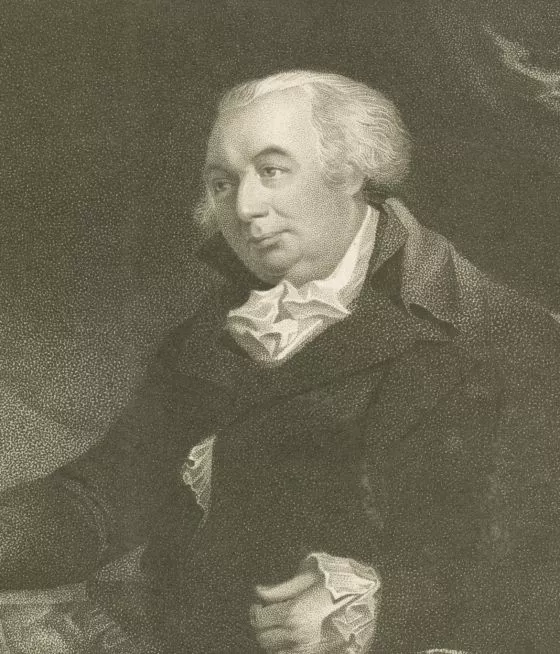
ED: Describe Morris’s unique thoughts on the nature of the presidency and the composition of the Senate.
DR: Morris was one of the two chief architects of the presidency as we know it, along with James Wilson. He did as much as anyone to devise the idea of an electoral college to choose the president, although he regarded it as a second-best option; he was one of the few framers who would have preferred a direct popular election. Morris also did everything that he could—through the debates, within various committees, and as the author of the final draft of the Constitution—to enhance the president’s powers. The presidency that emerged from the Convention ended up being far stronger than most of the delegates would have expected going in, but Morris would have liked it to have been stronger still.
Morris’s views on the Senate were rather counterintuitive. He proposed that the Senate should be made up exclusively of wealthy individuals who would be chosen by the president and who would serve for life—and, strangely enough, he thought that all of this would serve to check the political power of the rich. I can’t recount the entire argument here, but the basic idea was that he thought the rich would be easier to restrain if they were isolated and confined to the Senate, where the people—and their representatives in the House of Representatives—would naturally scrutinize their every move and be always at the ready to resist any oppressive measures that they tried to pass.
ED: Tells us about Morris’s views on slavery.
DR: This was really Morris’s finest hour at the Convention, from today’s perspective. No one spoke more passionately, or eloquently, or at greater length about the evils of slavery than he did.
Morris effectively served as the framers’ conscience on this issue, but—as sometimes happens—that conscience was all too often ignored.
He called it “a nefarious institution” and “the curse of heaven on the states where it prevailed.” His long speech of August 8 has been called the first abolitionist speech in American public life—which may be a bit of an exaggeration, but does have at least a grain of truth to it. I can’t resist relating the climax of that speech, which Morris delivered in opposition to the notorious three-fifths clause:
“The admission of slaves into the representation, when fairly explained, comes to this—that the inhabitant of Georgia and South Carolina who goes to the coast of Africa, and, in defiance of the most sacred laws of humanity, tears away his fellow creatures from their dearest connexions, and damns them to the most cruel bondage, shall have more votes in a government instituted for protection of the rights of mankind, than the citizen of Pennsylvania or New Jersey, who views with a laudable horror so nefarious a practice.”
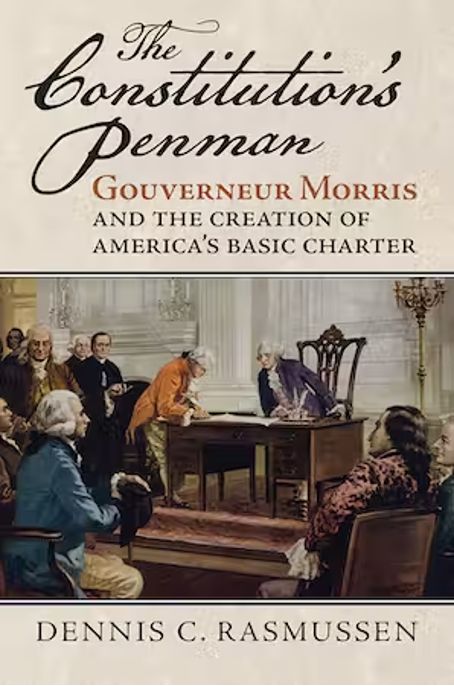
ED: What made Morris “Forgotten, Yet Unforgettable”?
DR: I borrow that phrase from Bill Treanor, who’s the dean of Georgetown Law and who wrote an important law review article on Morris’s penning of the Constitution. I use the phrase to encapsulate one of the real puzzles surrounding Morris. On the one hand, he would seem to be an unforgettable figure, given that he was such a colorful character and had such an immense impact. On the other hand, he has been largely forgotten; it’s a pretty small fraction of Americans who have any idea who he was.
I run through a number of possible explanations for this disconnect in the book’s introduction, but I’m not entirely persuaded by any of them. It’s just a mystery to me how someone who was so central at the Philadelphia Convention, who penned the Constitution itself, and who was one of the staunchest critics of slavery among the founders could continue to be so little known. My hope is that one day Morris will be given his due, and—who knows?—maybe even that my book will play a small part in making that happen.
ED: What has your research on Morris taught you about America’s founding principles and history?
DR: Lots of things, but I’ll mention just a couple. One is that the founders held a far wider range of views than we often recall. We often think and speak of “the founders” as if they were a likeminded group, but of course they disagreed with one another all the time. On all of the topics that I’ve just discussed—the presidency, the Senate, and slavery, not to mention a host of others—the delegates at the Philadelphia Convention put forward wildly divergent views.
On a related note, I’ve been struck by just how much uncertainty and contingency surrounded the process of formulating the Constitution. We sometimes seem to imagine, in retrospect, that the Constitution was bound to take something like the form that it did, but there was nothing inevitable about almost any of it.
DR: To take just one example, I don’t think many people realize how close the Convention came to proposing that the president be chosen not by an electoral college or by a popular vote, but rather by Congress—which would have gone a long way toward making the American government a parliamentary rather than a presidential system, in contemporary terms. For almost the entire summer—all but a couple of weeks—the plan on the table included congressional selection of the president, and this method would almost certainly have prevailed were it not for Morris’s and Wilson’s objections to it.
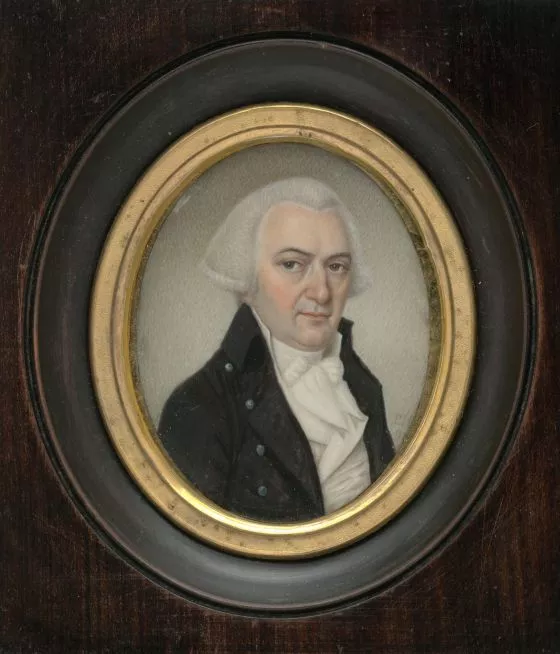
DR: To take just one example, I don’t think many people realize how close the Convention came to proposing that the president be chosen not by an electoral college or by a popular vote, but rather by Congress—which would have gone a long way toward making the American government a parliamentary rather than a presidential system, in contemporary terms. For almost the entire summer—all but a couple of weeks—the plan on the table included congressional selection of the president, and this method would almost certainly have prevailed were it not for Morris’s and Wilson’s objections to it.
ED: What’s one thing you wish that every student knew about the American political tradition?
DR: Well, in the context of an interview about this book, the answer is obvious: I wish everyone knew who Morris was, and that he wrote the Constitution!
ED: Agreed, what an amazing American! Thank you for your time!
Elliott Drago serves as the JMC’s Resident Historian and Editorial Manager. He is a historian of American history and the author of Street Diplomacy: The Politics of Slavery and Freedom in Philadelphia, 1820-1850 (Johns-Hopkins University Press, 2022).
